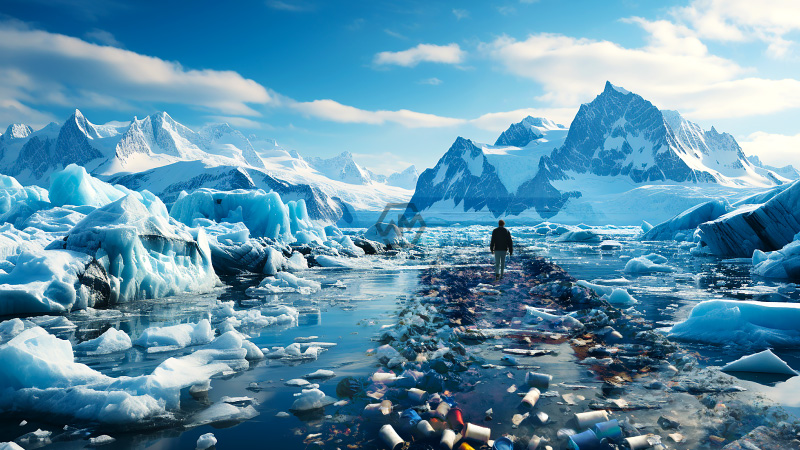- Arctic sea ice decline accelerates, opening new shipping routes.
- Increased vessel traffic introduces plastic pollution and underwater noise.
- Indigenous communities face threats to traditional diets and health from environmental changes.
The Arctic, traditionally a pristine wilderness, faces escalating environmental threats as sea ice retreats due to global warming. This retreat not only opens up new shipping routes but also exposes Arctic ecosystems to increased pollution, particularly from plastic waste and underwater noise.
Furthermore, the influx of vessels, including fishing trawlers, exacerbates the pollution problem, with discarded fishing gear and plastic packaging becoming pervasive in Arctic waters. Efforts to mitigate these impacts are hindered by the region’s remote location and complex governance structure, making effective regulation and waste management challenging.
Melting Arctic Ice: A Call for Sustainable Solutions
The rapid melting of Arctic sea ice has transformed the region into a focal point of environmental concern. The diminishing ice cover has facilitated increased maritime activity, promising shorter shipping routes between continents but also introducing significant environmental risks. Plastic pollution, primarily from fishing activities and shipping, threatens Arctic marine life, with microplastics entering the food chain and posing health risks to both wildlife and Indigenous communities.
In addition to plastic pollution, the rise in vessel traffic contributes to underwater noise pollution, disrupting marine ecosystems that rely on sound for communication and navigation. The cumulative impacts of these changes underscore the urgent need for sustainable practices and international cooperation to protect the Arctic environment. Initiatives such as banning heavy fuel oil use in Arctic shipping aim to mitigate black carbon emissions, which further accelerate ice melt and environmental degradation.
Efforts are also underway to enhance monitoring and enforcement of environmental regulations in the Arctic. These include proposals to label fishing gear to trace sources of marine debris and improve waste management practices on ships. However, addressing these challenges requires concerted global efforts and adherence to stricter environmental standards to preserve the Arctic as a vital ecological and cultural resource.
As the Arctic continues to warm at an alarming rate, the need for proactive measures to mitigate environmental degradation and protect Indigenous livelihoods becomes increasingly urgent. Sustainable policies, technological innovations, and international cooperation are essential to safeguarding this fragile region and its invaluable biodiversity.
“Plastic pollution has emerged as one of the most pervasive problems affecting the marine environment in recent years. Global efforts on a treaty to put an end to it made only slow progress at the last negotiation meeting in Canada, amid increased industry lobbying.”



